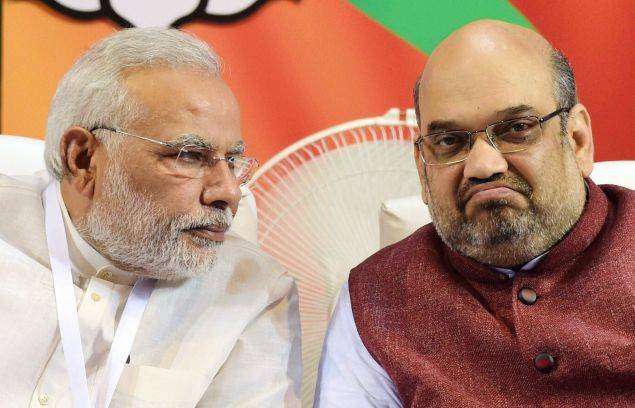BJP Didn’t Have Candidates For 150 UP Seats ?
 NEW DELHI : Prime Minister Narendra Modi set the BJP its Uttar Pradesh goal: to end 14 years of vanvas or exile in the state by returning to power. But even getting battle-ready for complex UP has proved tough.
NEW DELHI : Prime Minister Narendra Modi set the BJP its Uttar Pradesh goal: to end 14 years of vanvas or exile in the state by returning to power. But even getting battle-ready for complex UP has proved tough.
After multiple surveys over the months before the assembly elections to work out the right balance of caste and community that it needs in each of UP’s 403 seats, the BJP realised that the more difficult task was to find the right candidate.
“Just before the elections it was clear that in 150 odd seats we don’t have the right candidates,” a senior party leader who has managed UP affairs said.Acquiring ready-made, “tried and tested” candidates from other parties was seen as the most effective solution, sources said, explaining the 50-odd recent imports that it has already named as candidates for UP in the 371 seats it has so far announced.
The decision has caused massive heartburn, with people who have been in the party for years protesting at not being given ticket.
“The lack of right candidates has reasons rooted in the party’s past. The BJP was dominated by the upper castes and it traditionally gave a majority of the seats to them. What was left was given to others. But now the politics has changed. The BJP has to retain its traditional vote bank, plus engage other communities who are larger in number,” the leader said.
The BJP does not draw a sizeable chunk of its support in UP from one community, like the Samajwadi Party does from the Yadavs or Mayawati’s Bahujan Samaj Party from Dalits. It has so far banked on a blend of polarisation based on emotive appeals and tapping disenchantment with other parties to build rainbow coalitions that can defeat mighty combinations like Yadav-Muslims or Dalit-Muslims.
In the 2014 general election, the BJP had won 71 of UP’s 80 seats as non -Yadav Other Backward Castes (OBCs) and Most Backward Castes (MBCs) voted for it. To keep them engaged, the party has this year fielded 40 per cent of its candidates from these segments.
Brahmins and other upper castes make up about 22 per cent at about 120 seats and on about 18 seats the party has fielded banias or traders, who have always backed the party but are upset with it over the Goods and Services Tax and demonetisation, reforms that are seen to have hit small businesses.
As the party tries to extend it spectacular performance in the parliamentary elections to the state, almost every senior BJP leader admits that the assembly polls are a different ball-game. “2014 was a win which can’t be replicated. We had fielded rank newcomers and their victory was ensured by a Modi wave and a big backlash against the Congress.
In these assembly polls we need five times as many candidates and there is no swing,” said a BJP leader, adding, “It’s down to realpolitik. And that’s why the party has no option but the calm down those who are protesting against ticket being allotted to outsiders.” UP votes in seven phases starting February 11. Results will be declared March 11.

